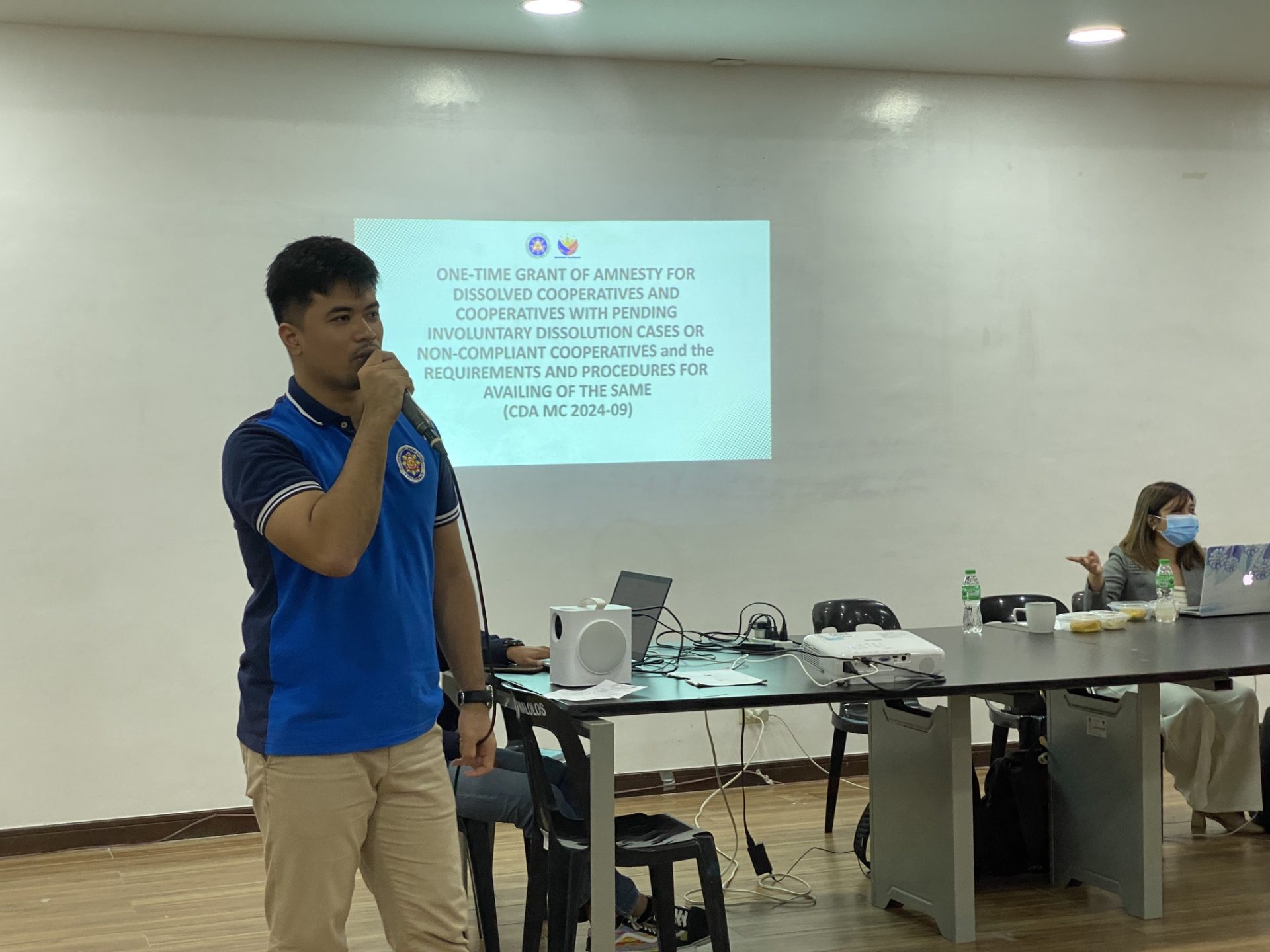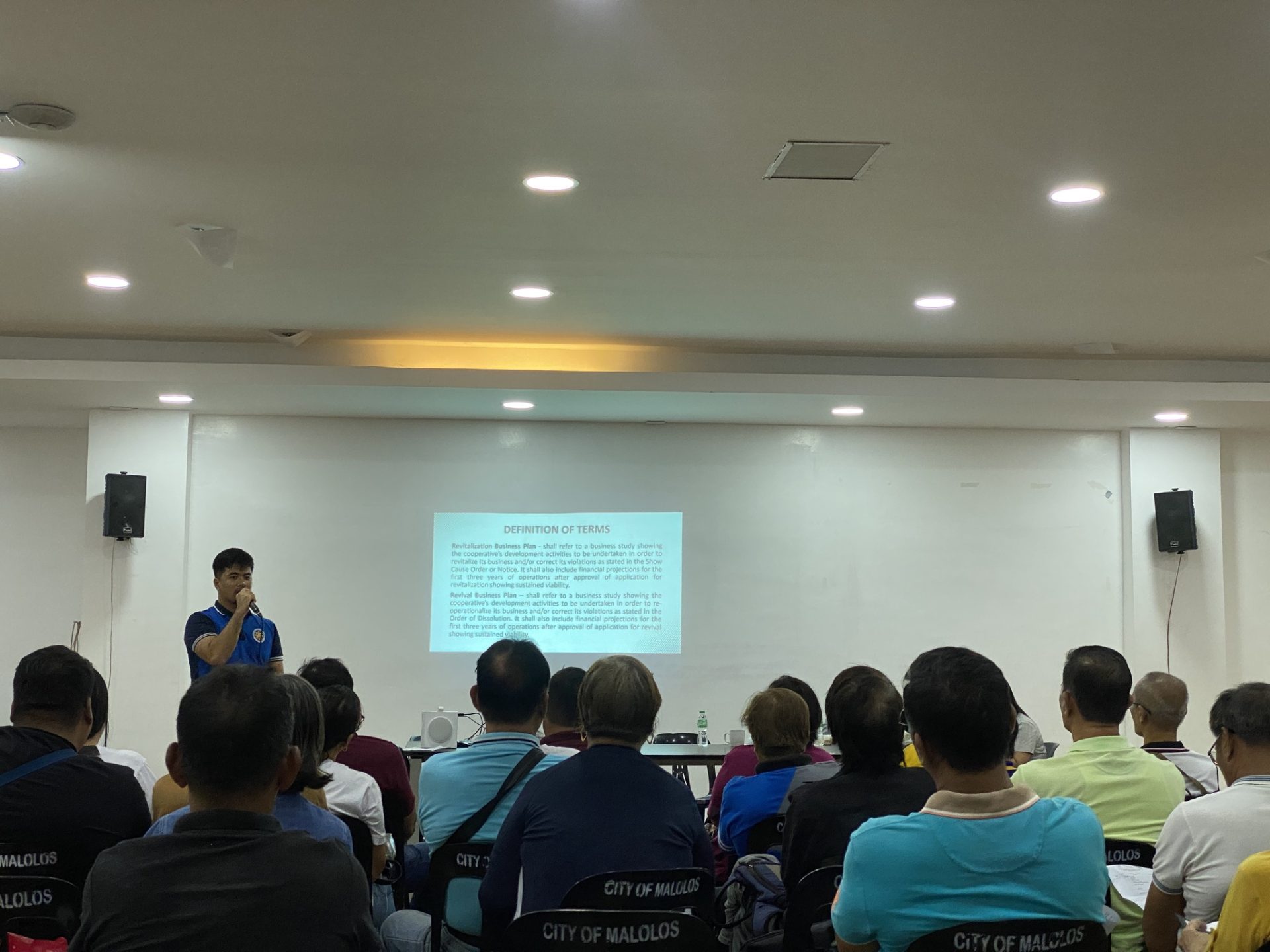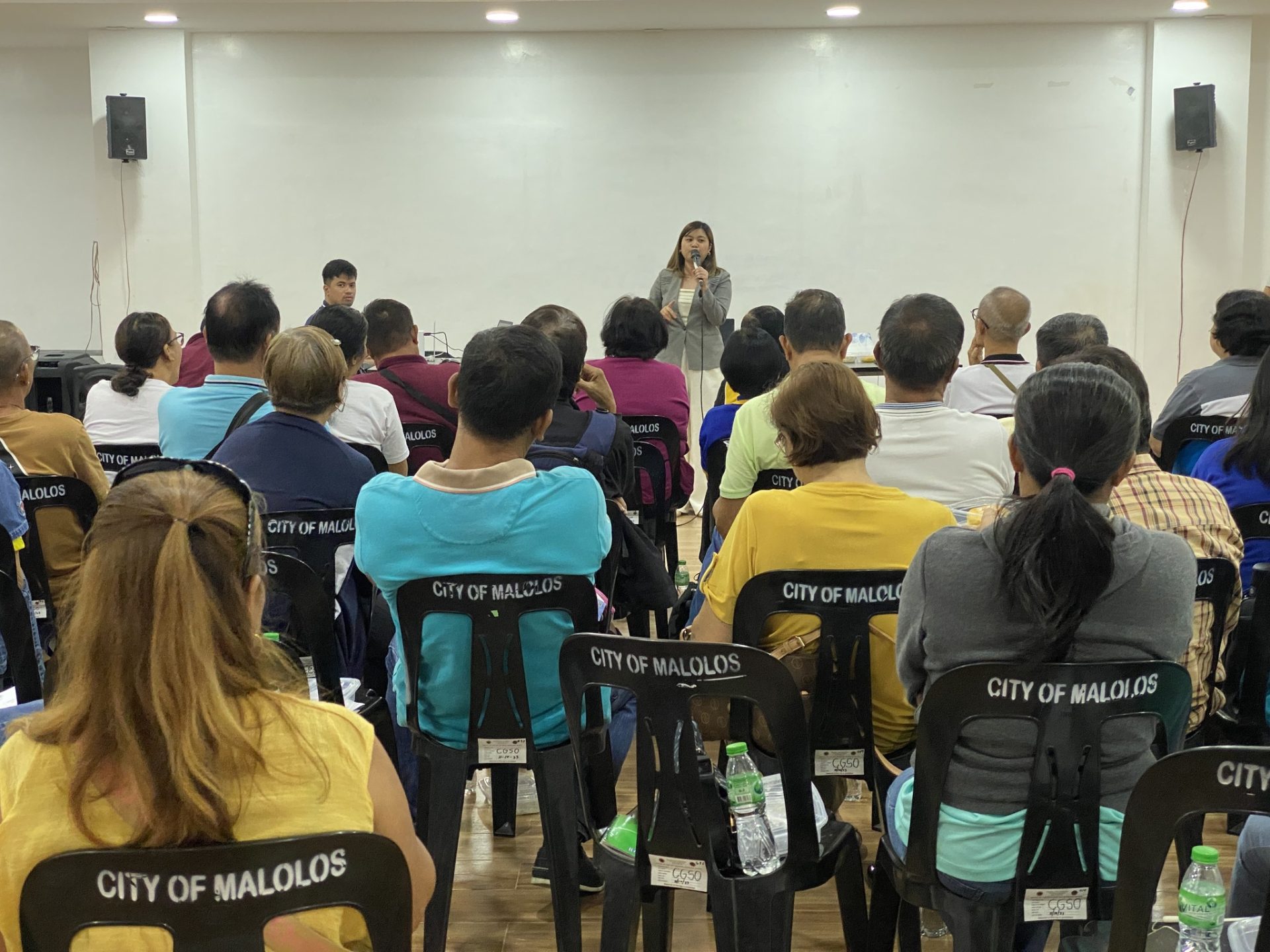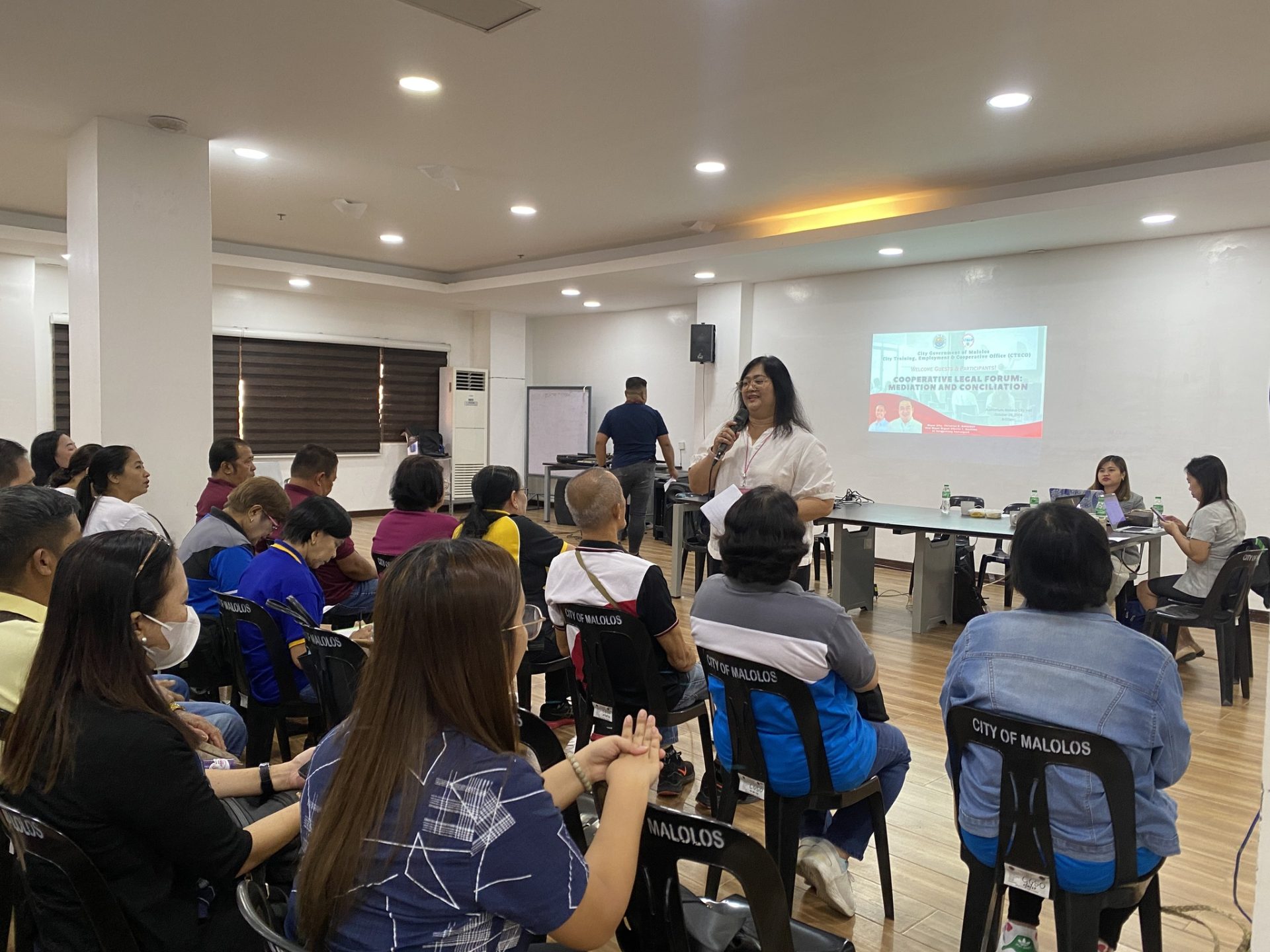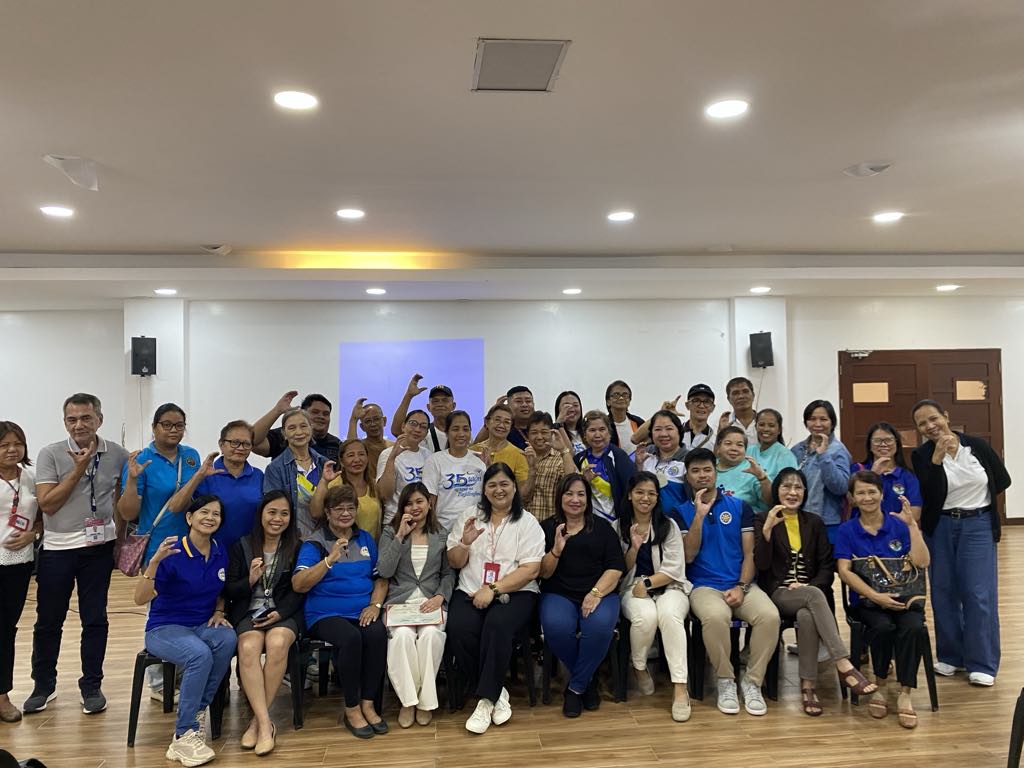The Cooperative Development Authority Region III Extension Office, under the leadership of Regional Director Marieta P. Hwang, thru the Legal Section, organized a Legal Forum for Cooperatives on October 8, 2024, at the New City Hall Building Government Center, Brgy. Bulihan, City of Malolos, Bulacan. The event was participated by 44 cooperative leaders and representatives from various parts of Bulacan, as well as key representatives from the City Training, Employment and Cooperative Office (CTECO) – Cooperative Division. Three (3) agricultural cooperatives were among the participants who actively joined the forum, this includes the (1) Palayan Sa Nayon Multipurpose Cooperative, (2) San Pablo Multipurpose Cooperative, and (3) Fishery Multipurpose Cooperative.
Specifically, the forum aimed to equip the cooperative members/officers across Bulacan with proper knowledge on the procedures of availing the one-time grant of amnesty, and conducting conciliation, mediation, and dialogue to enhance the efficiency, professionalism, and sustainability of their respective cooperatives. It also served as a platform for the participants to share their cooperative’s best practices, address the pressing issues they are experiencing, and outline future directions for their legal concerns.
Ms. Mellany D. Catanghal, Chief of CTECO-Cooperative Division, commenced the activity with her welcoming remarks. Ms. Catanghal highlighted the objectives of the activity, and reiterated the importance of collaboration, and the role of cooperatives in fostering community development. She further encouraged the attendees to actively participate to enhance their learning experience. Ms. Catanghal also took the opportunity to extend her appreciation toward the cooperatives’ participation and support in the recently held 2024 Cooperative Month Parade and Kick-off Ceremony.
The lecture proper started with a comprehensive discussion on the one-time grant of amnesty. Mr. Dave Floyd Espinosa, CDS II – Legal Section, explained the significance and implications of availing the one-time amnesty for the cooperative community. Mr. Espinosa’s discussion detailed the provisions of Memorandum Circular (MC) No. 2024-09, and covered the guidelines for the revival of dissolved cooperatives, and revitalization of non-compliant cooperatives and those with pending involuntary dissolution cases, the eligibility criteria, application process, and potential benefits that they could receive from participating in this program.
After Mr. Espinosa’s discussion, Atty. Macy Marcelo, Attorney III – Legal Section, addressed the questions and concerns raised by the attendees. Atty. Marcelo explained the mandate of the Cooperative Development Authority (CDA), and its commitment to give cooperatives who have been dissolved and/or have pending involuntary dissolution cases but whose certificates of registration have not yet been cancelled one last chance to revive or revitalize through these guidelines.
Atty. Marcelo shared her observation that most cooperatives were dissolved or have pending involuntary dissolution cases due to non-compliance with the submission of mandatory reports as provided in Art. 53 of R.A. 9520, and consequently, those cooperatives will be charged with monetary penalties for the delay, except for micro cooperatives. Other violations include non-compliance with noted violations of the bylaws and the Code as established through inspections and examinations in pursuit of the regulatory power of the Authority.
Atty. Marcelo mentioned that there are cooperatives who, despite the lapse of several years, have failed to revive or rehabilitate and remain on the master list, clogging the dockets of the Authority. Some even continue to operate without authorization. To give these cooperatives a final chance to revive, rehabilitate, and attain compliance—especially those operating without authority—the guidelines stated in MC No. 2024-09 was issued to offer one-time amnesty.
After the orientation on availing one-time amnesty, Ms. Marichris S. Lanorio, CDS II – Cooperative Research, Information and Training Section, discussed the conciliation-mediation procedures during the second leg of the activity. Ms. Lanorio encouraged the participants to engage in conciliation-mediation in handling their issues within the cooperative to preserve the harmonious relationship among members and officers. In her discussion, she highlighted the nature and procedures of mediation and conciliation, emphasizing the uniqueness between the two processes.
Ms. Lanorio reiterated that mediation, an alternative form of dispute resolution, involves an unbiased third-party mediator who facilitates the discussion to help both parties come to agreements. On the other hand, the third party on conciliation plays an advisory role and may intervene in order to offer feasible solutions to both parties and help settle their disputes.
The last topic on Dialogue was delivered by Atty. Marcelo. In her presentation, Atty. Marcelo defined dialogue as an informal, non-litigious or non-adversarial, inexpensive, and expeditious settlement of a dispute or conflict. Atty. Marcelo also mentioned that the facilitator of a dialogue must undergo training on dispute resolution in order to better facilitate the mediation between the conflicting parties, resolve the dispute or conflict and to come up with an amicable settlement. She also stated that dialogue shares similar problem-defining and problem-solving stages with mediation. Atty. Marcelo further discussed the finality of the agreement in a dialogue and its force and effect of law among the parties, 15 calendar days after signing. Changes within the said period would require mutual consent, while disputes after 15 days may be resolved through voluntary arbitration or adjudication.
After the lecture proper, and to complement Ms. Lanorio’s discussion, some participants were asked to perform a simulation of the mediation process. Each group was composed of a complainant, respondent, and mediator, and was given a unique dispute to resolve. After the group presentation, Ms. Lanorio commended the participants and gave her feedback and advise to improve their mediation skills. Atty. Marcelo also provided legal advice on the concerns of some cooperatives during the open forum.
The closing program was facilitated by Ms. Mellany D. Catanghal. During the closing program, some participants shared their positive impressions on the activity. Afterwards, Ms. Catanghal delivered her response to the participants’ overwhelming feedback, then proceeded with her closing remarks. Ms. Catanghal thanked all the participants who attended the forum and expressed her appreciation toward the CDA staffers who willingly and continuously support the cooperatives in Bulacan. She also encouraged the participants to join the 2024 KoopLympics and showcase their products at the event grounds in celebration of the Cooperative Month.
